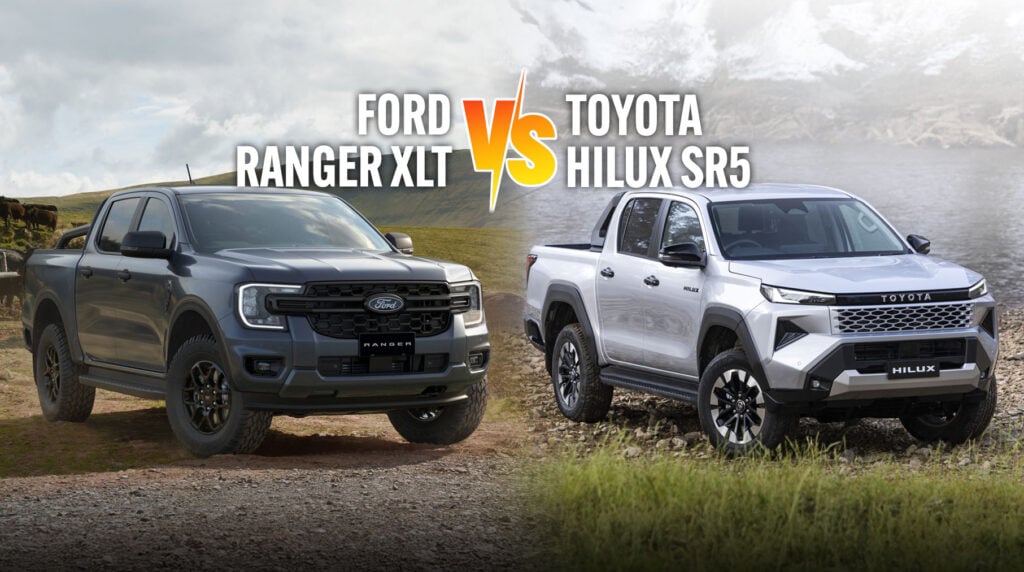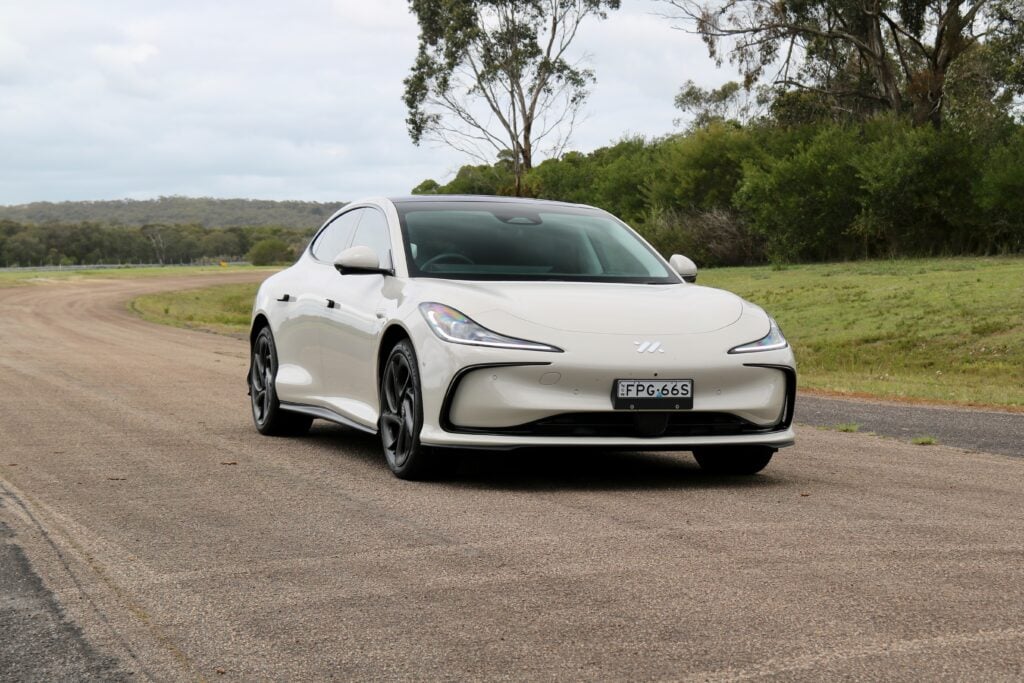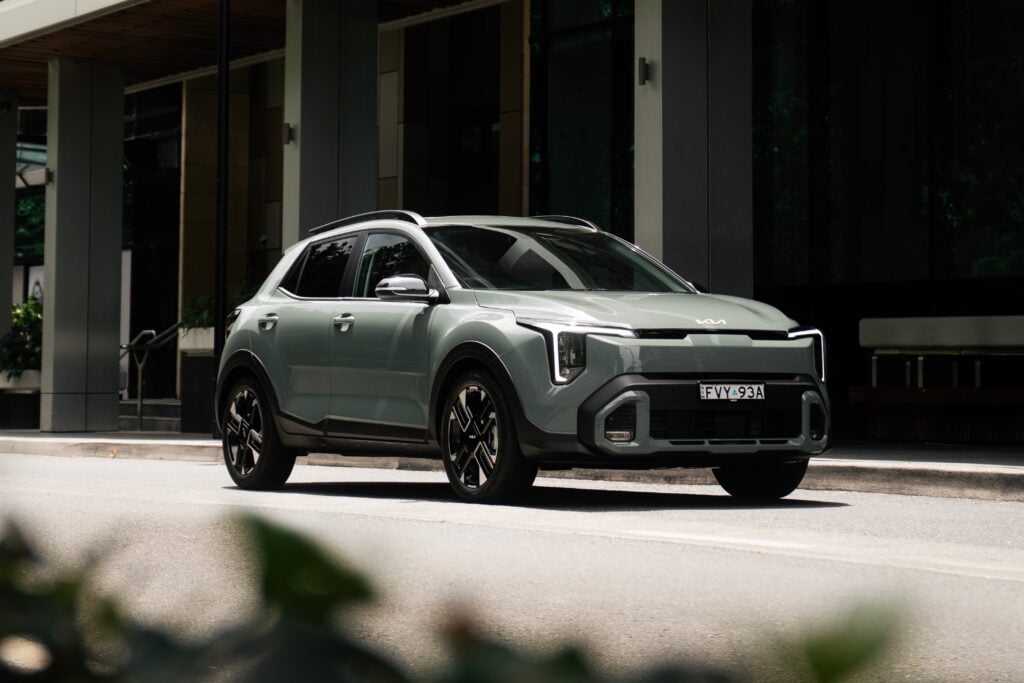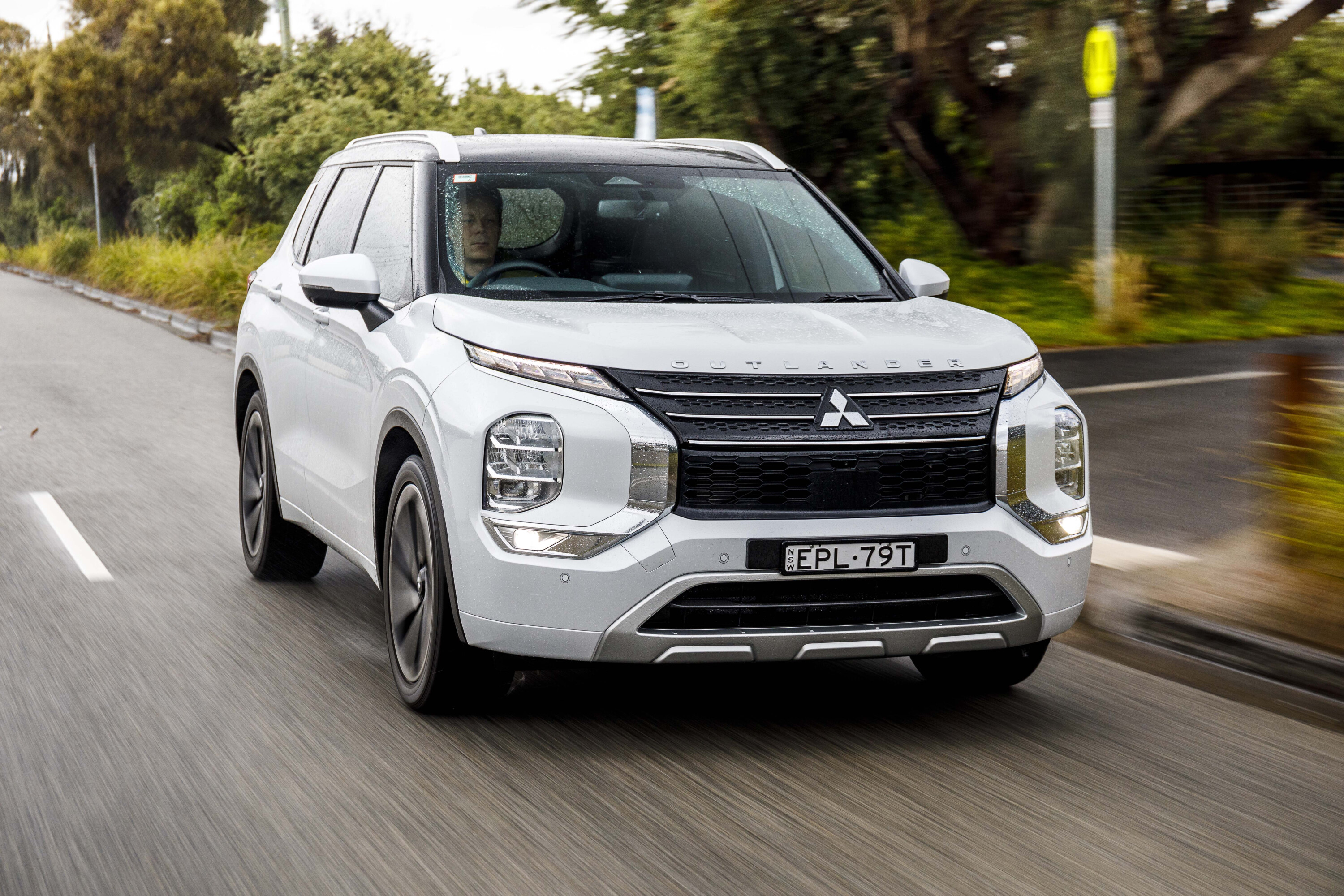
Score breakdown
Things we like
- Bold exterior styling
- Cabin feels modern and premium
- Plug-in hybrid offers strong performance and impressive economy
Not so much
- Plug-in hybrid versions are expensive
- Rear-seat room and boot space aren’t class-leading
- Big wheels on top-spec models can jolt unpleasantly over bumps
The Mitsubishi Outlander has been a mainstay of Australia’s mid-size SUV segment since the early 2000s.
Now in its fourth generation, this latest Outlander launched locally in 2021 and is sharp to look at, roomy to sit in and fun to drive.
It also offers buyers the choice of versions with five or seven seats, which is rare for this segment.
Standard equipment levels are high across the range, too, and Mitsubishi offers Australia’s longest new-car warranty at 10 years, provided you service your Outlander at an approved dealer.
Another key Outlander attraction is the power and economy offered by versions fitted with a plug-in hybrid powertrain.
Although more expensive than petrol-powered Outlanders, the plug-in models, which are badged as Outlander PHEV (plug-in hybrid electric vehicle), are smoother and faster to drive and can travel up to 84km on electricity alone which helps to save fuel.
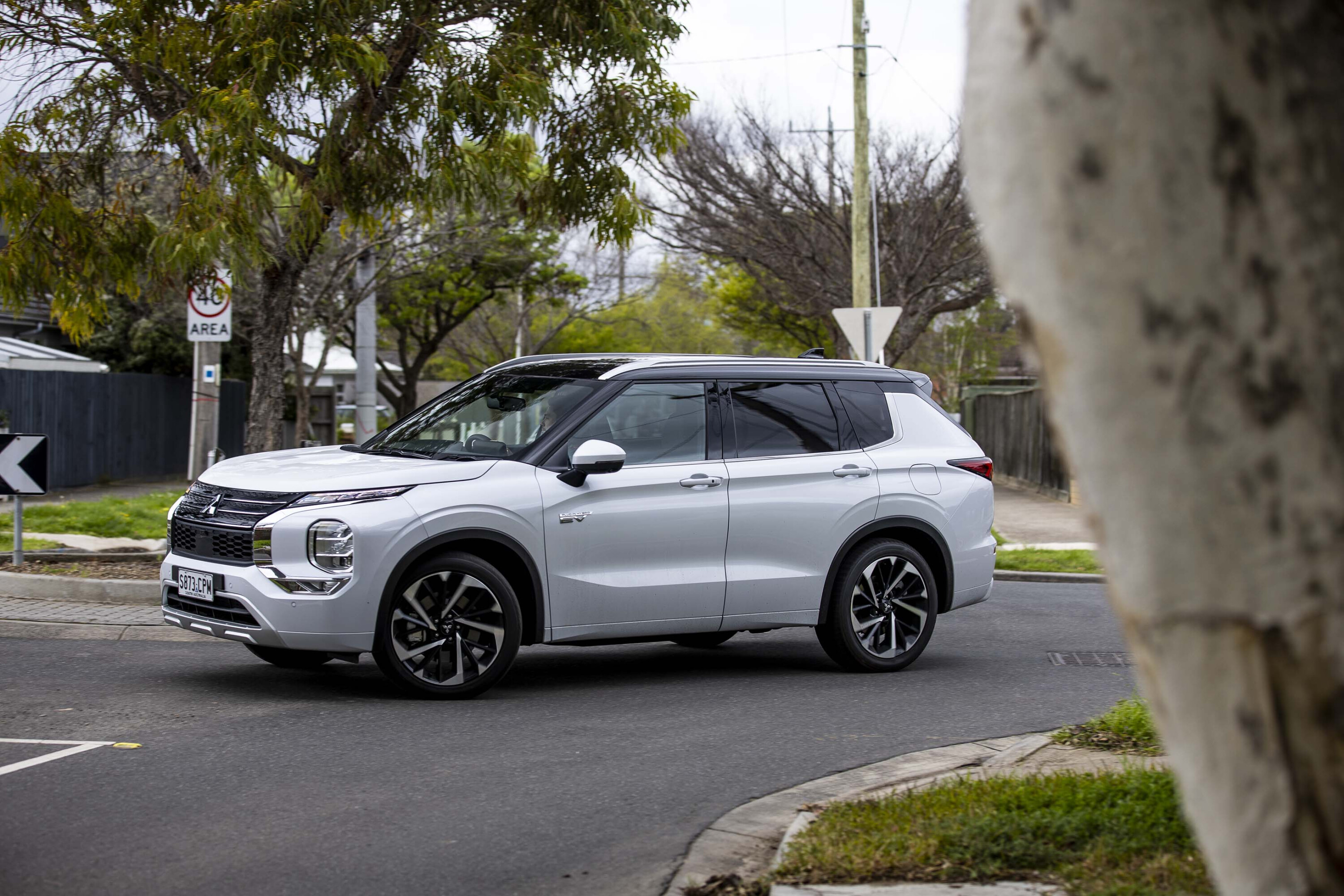
JUMP AHEAD
- Pricing
- Body styles
- Standard features
- Upgrades
- Comfort
- Boot space
- Driving enjoyment
- Fuel efficiency
- Towing capacity
- Warranty & servicing
- Recommended version
- Key rivals
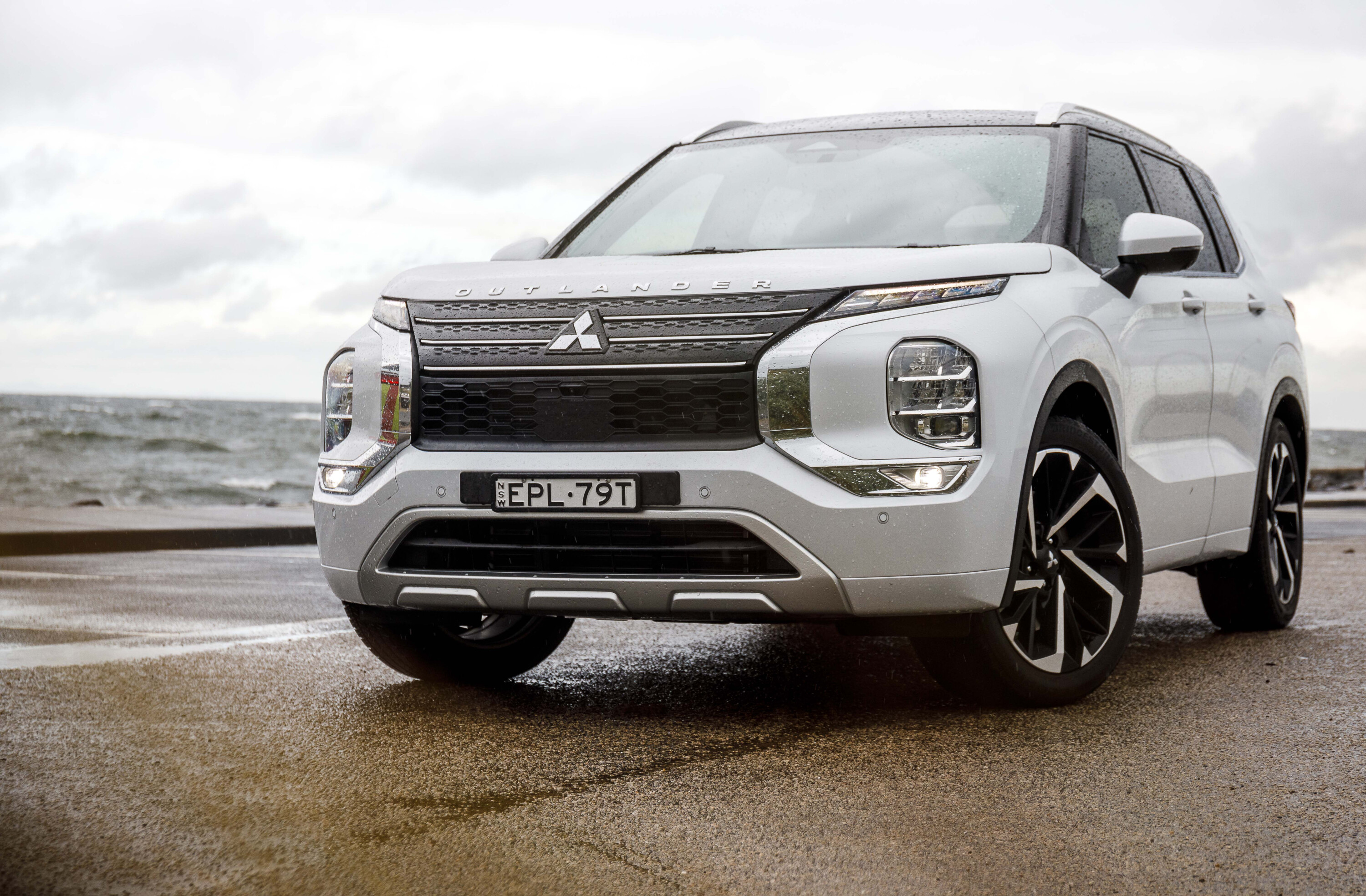
Pricing
What body styles are available for the Mitsubishi Outlander?
The Mitsubishi Outlander is available only as a five-door SUV. It is offered either as a five-seater or with an additional third row, boosting the seating count to seven.
Buyers can choose between front-wheel-drive models or versions fitted with an all-wheel-drive (AWD) system which offers greater traction, especially in slippery conditions. AWD models command a $2500 price premium.
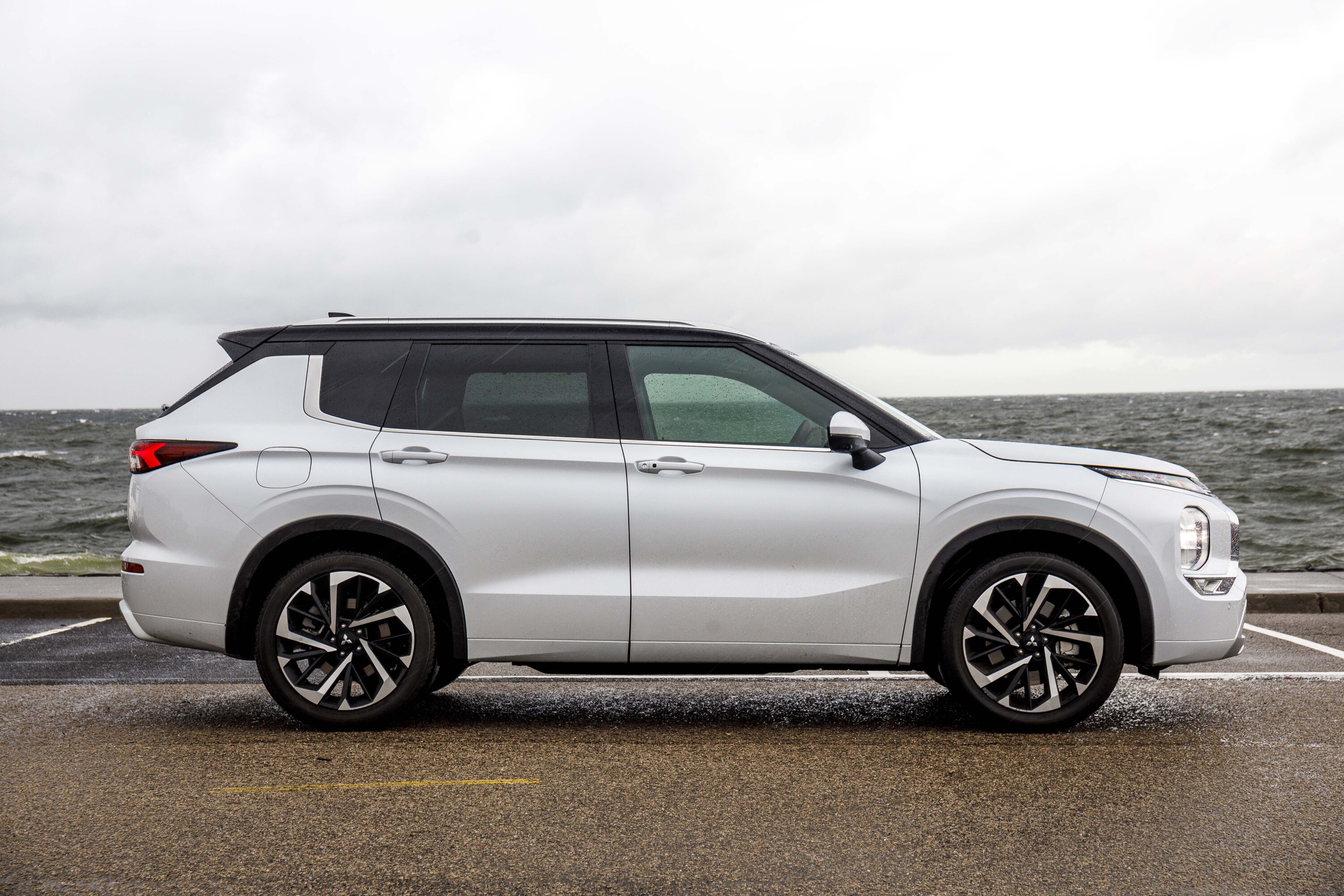
Two engines are available: a 2.5-litre naturally aspirated petrol or a plug-in hybrid version (Outlander PHEV), which combines a 2.4-litre petrol engine with a 20kWh battery and two electric motors.
The Outlander PHEV uses less fuel and also offers an impressively long electric-only range of 84km.
PHEV models are also more powerful and smoother to drive, although they command a sizeable $16,000 price premium over equivalent models fitted with the 2.5-litre petrol engine.
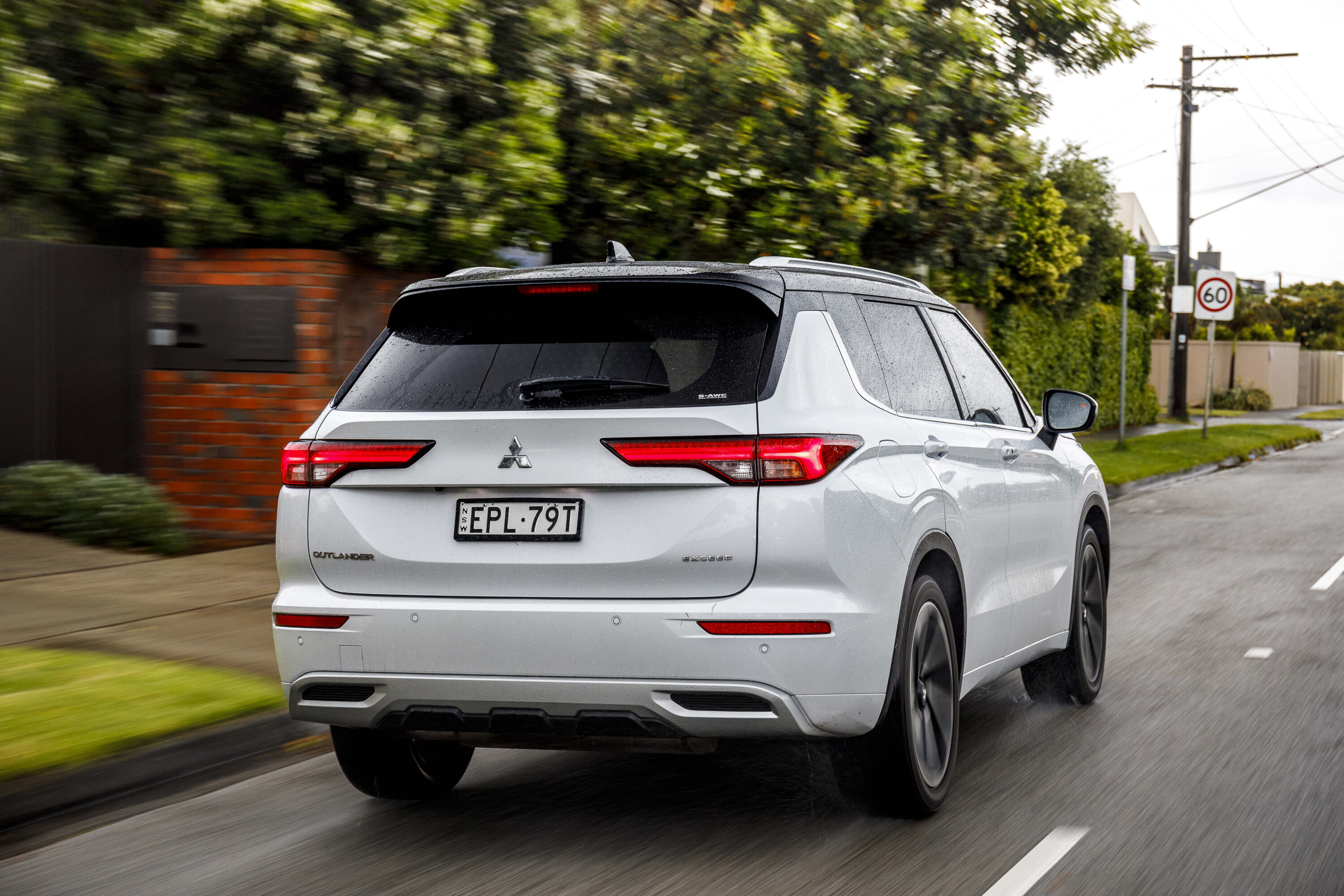
What features are standard in every Mitsubishi Outlander?
The features listed below are standard in the entry-level ES 2WD model and will appear in higher-grade models unless replaced by more premium equivalent features.
| 2024 Mitsubishi Outlander standard features | |
|---|---|
| 18-inch alloy wheels | Cloth seat trim |
| 5 drive modes (Normal, Eco, Tarmac, Gravel, Snow) | DAB+ digital radio |
| 6-speaker audio system | Dual-zone climate control |
| 8 airbags | Full-size alloy spare wheel and tyre |
| 8-inch centre touchscreen | Hill descent control, which can regulate speed automatically on steep downslopes when driving off-road |
| Reversing camera | Lane departure warning and prevention |
| Adaptive cruise control | LED daytime running lights (DRLs) |
| Android Auto (wired) and Apple CarPlay (wired), which let you display smartphone apps on the touchscreen | LED headlights with automatic high beam |
| Autonomous emergency braking with pedestrian and cyclist detection | Power-adjusted side mirrors |
| Blind-spot monitoring | Push button start and remote entry |
| Bluetooth connectivity for phone calls and audio streaming | Rear cross-traffic alert |
| Manual seat adjustment for driver and passenger | Traffic sign recognition |
| Dusk-sensing automatic headlights | Rear occupant alert |
| PHEV ES versions offer some additional features including larger 9-inch touchscreen, additional drive modes, digital instruments with a 12.3-inch screen, wireless Apple CarPlay and sat-nav but lack a spare wheel | |
What key features do I get if I spend more?
The least costly version, the Outlander ES 2WD, has cloth seats that are manually adjustable, an 8.0-inch touchscreen and 18-inch alloy wheels.
The ES 2WD comes standard with the 2.5-litre petrol engine linked to an automatic continuously variable transmission (CVT) and front-wheel drive as standard.
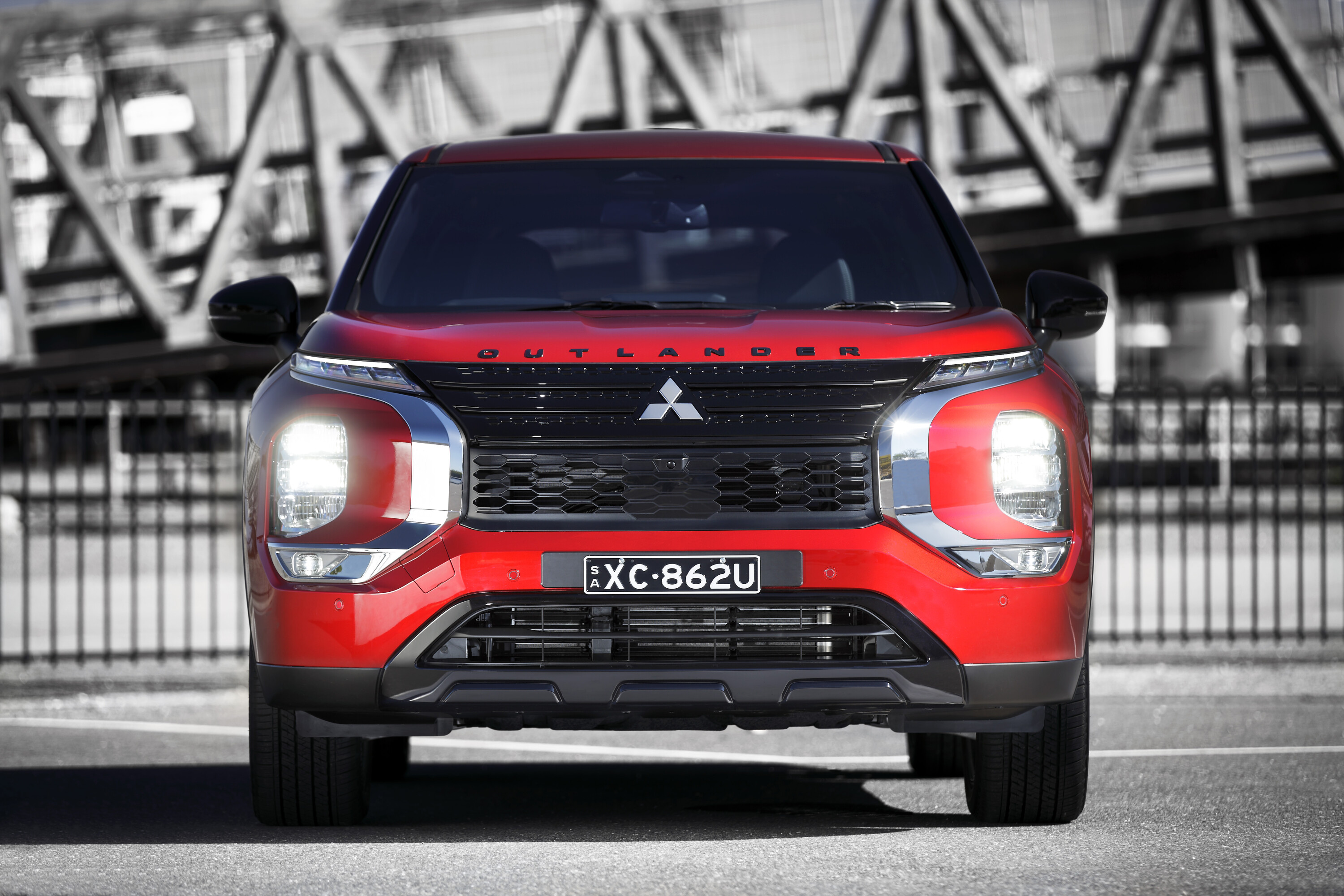
An all-wheel drive (AWD) version of the ES, (which aids security on loose or slippery surfaces and adds a sixth drive mode for driving on mud) is available at extra cost. The ES is also only available as a five-seater.
For extra features, and the option of seven seats, you could spend more for an Outlander LS.
The LS also brings
| 2024 Mitsubishi Outlander LS features | |
|---|---|
| 2 additional USB power outlets for rear passengers | Privacy glass |
| 5+2 seat capacity | Rain-sensing windscreen wipers |
| Heated wing mirrors that also fold electrically | Silver roof rails |
| Keyless entry | Sliding adjustment for the second row of seats which allows you to vary rear seat space and boot capacity |
| Larger 9-inch touchscreen with satellite navigation so you donu2019t have to rely on a phone app | Space-saver spare wheel |
| Leather gear selector | Wireless Apple CarPlay (rather than wired) |
| Leather steering wheel | Wireless phone charger |
| LED front fog lights | Auto-dimming rear-view mirror |
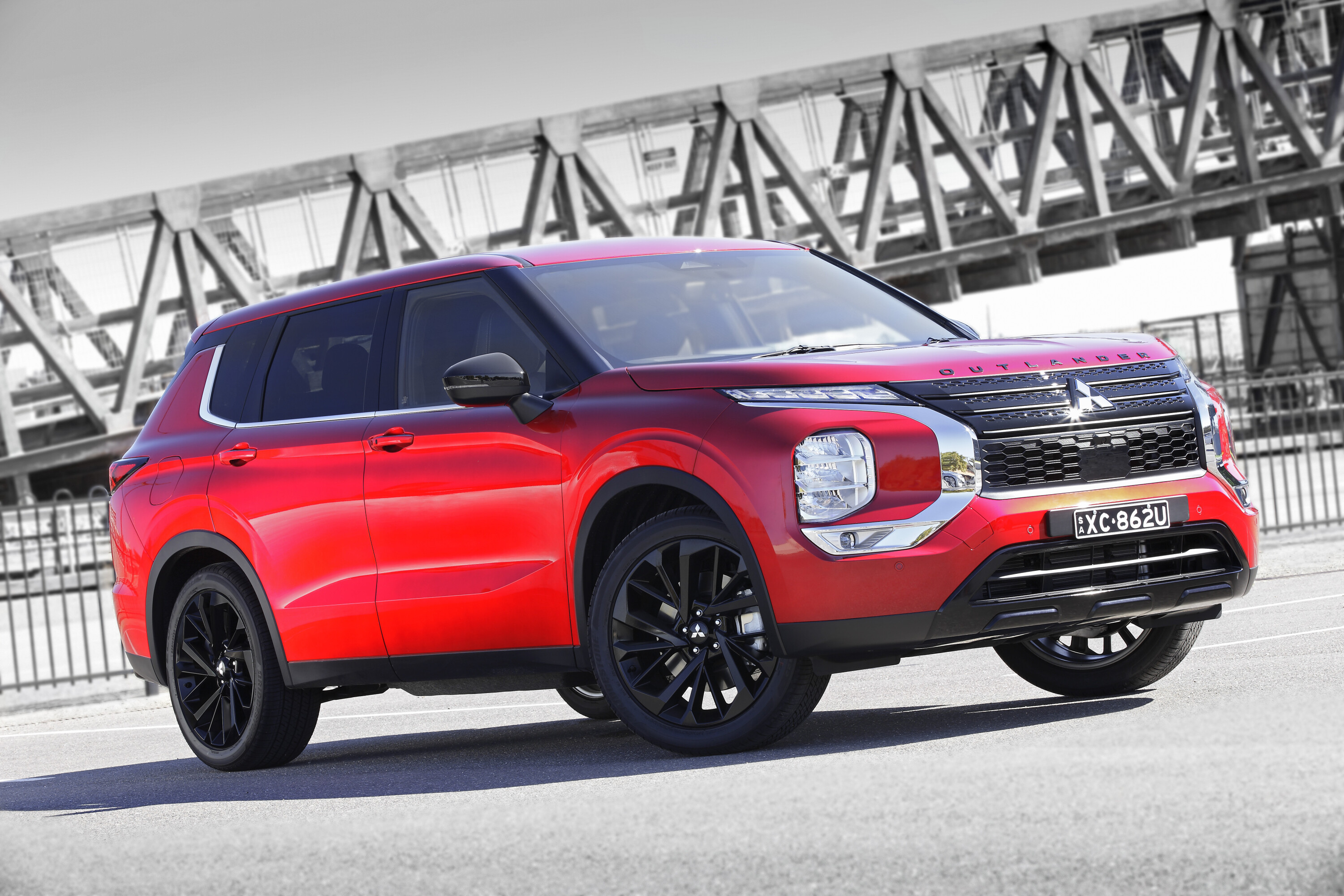
Paying more again for an Outlander Black Edition, based on the LS FWD model, gets you those features plus:
| 2024 Mitsubishi Outlander Black Edition features | |
|---|---|
| Black exterior detailing on the front grille, wing mirrors, A-pillars and rear skidplate | Microsuede seat trim with fake leather accents |
| Black headlining | Power adjustment for the driveru2019s seat |
| Larger 20-inch alloys with a black finish | |
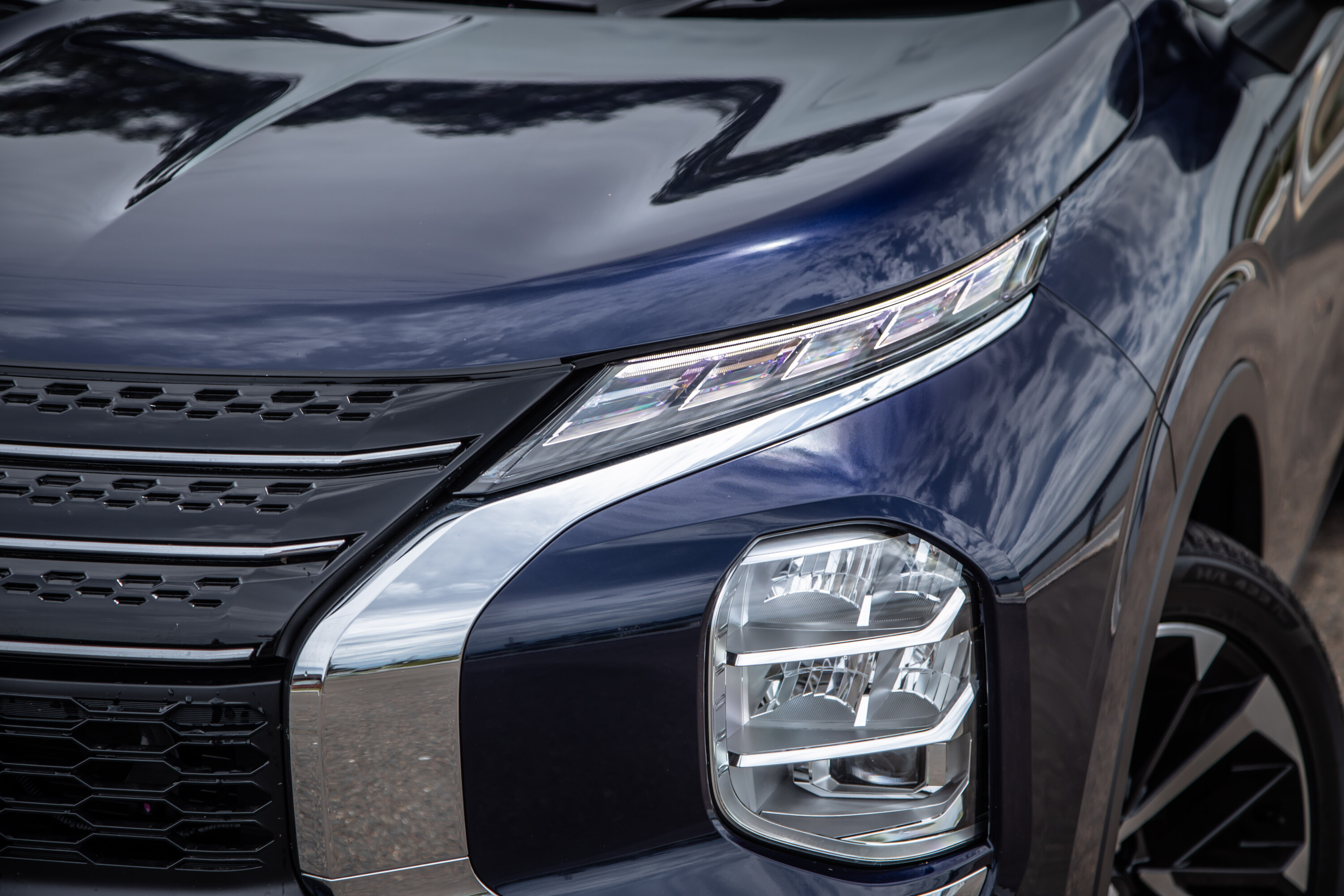
The Outlander Aspire sits in the middle of the Outlander range for price and equipment. It includes the above features and adds:
| 2024 Mitsubishi Outlander Aspire features | |
|---|---|
| 20-inch alloy wheels with two-tone design | Heated front seats |
| 360-degree surround view camera | LED headlights with automatic levelling function |
| Head-up display which projects useful information like your speed onto the windscreen so you donu2019t have to take your eyes off the road | Power tailgate for easier access to the boot |
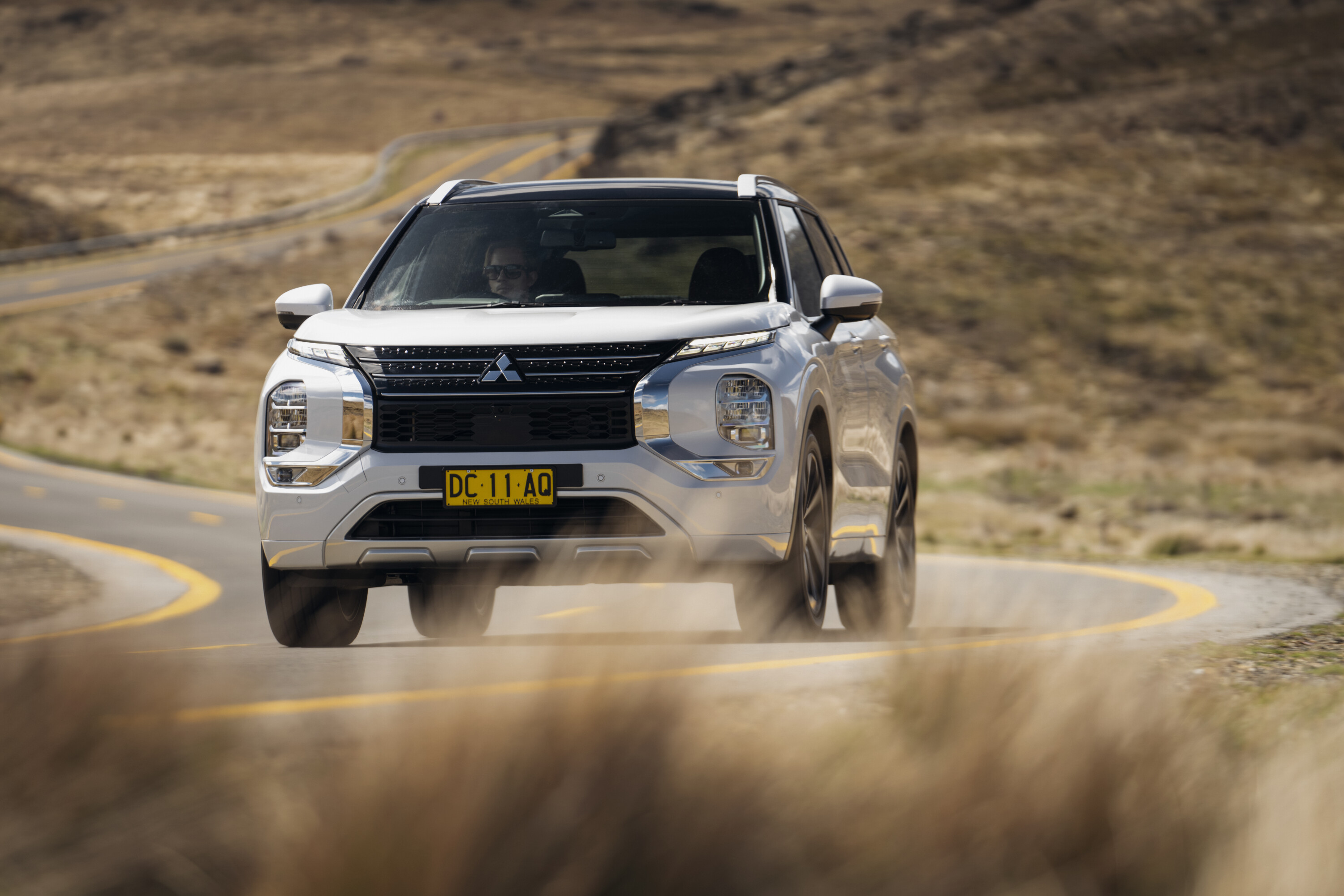
At the top of the Outlander range sit the Exceed and Exceed Tourer. They bring the following features:
| 2024 Mitsubishi Outlander Exceed features | |
|---|---|
| Black leather seat trim | Panoramic sunroof with tilt/slide function for the front section of glass |
| Digital instrument cluster with a 12.3-inch screen | Power front passenger seat adjustment |
| Hands-free power tailgate | Premium Bose sound system with 10 speakers |
| Heated steering wheel | Rear window blinds |
| LED sequential indicators | Tri-zone climate control with rear control panel on the back of the centre console |
| Memory function for both front seats | |
| 2024 Mitsubishi Outlander Exceed Tourer features | |
|---|---|
| Massage function for both front seats | |
| Two-tone exterior body colour | |
| Two-tone high-grade leather seats |
How safe is the Mitsubishi Outlander?
The 2024 Mitsubishi Outlander is one of the safest medium SUVs currently available.
It scored a maximum five-star rating from the Australasian New Car Assessment Program (ANCAP) in January 2022. This rating applies to both petrol and PHEV versions.
For child occupant protection, the Outlander’s rating was especially impressive with a 92 per cent result coming courtesy of full marks scored in both of ANCAP’s front and side dynamic tests.
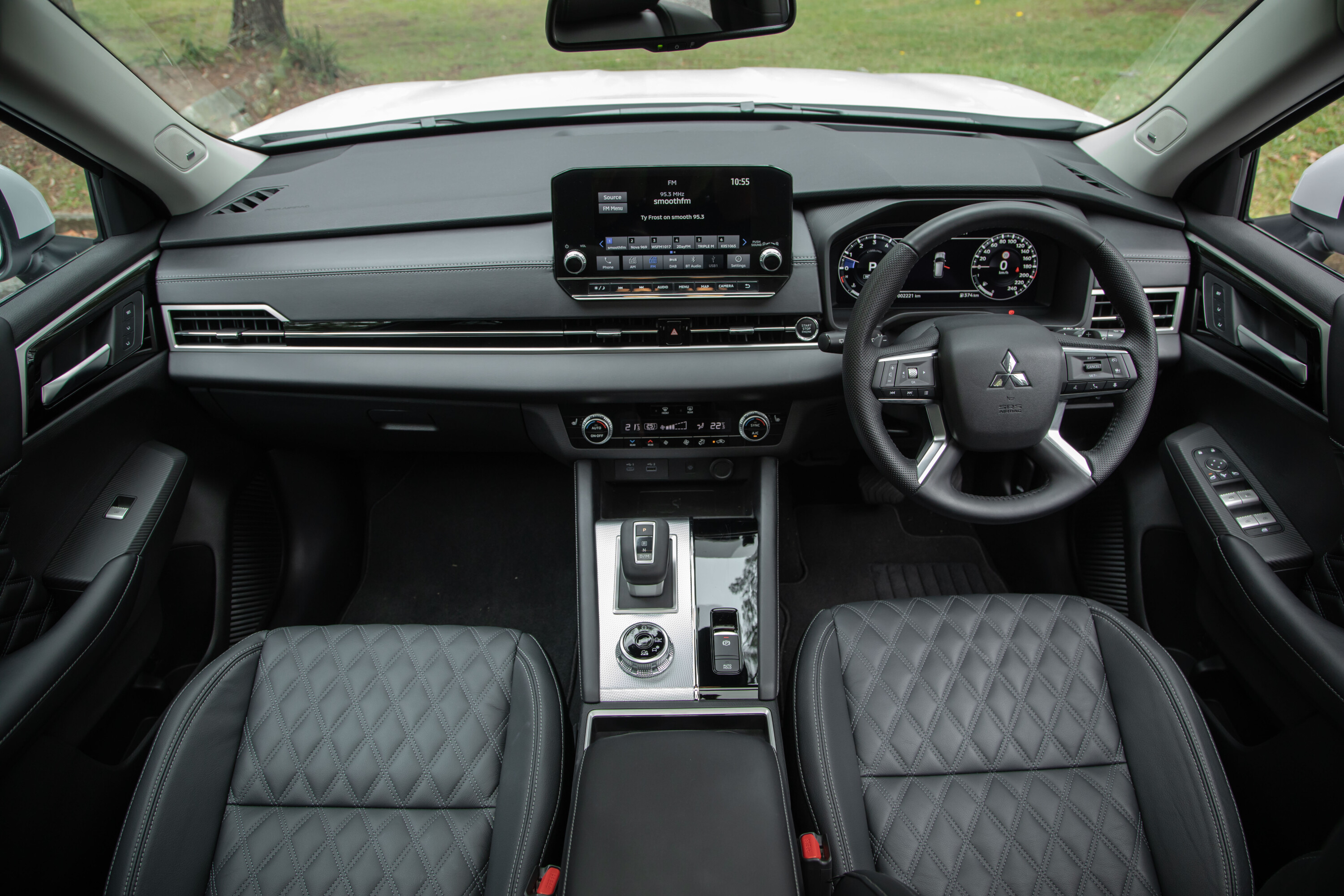
Adult occupant protection also rated highly at 83 per cent and the Outlander scored well for vulnerable road user protection (pedestrians and cyclists).
However, the lack of autonomous emergency braking (AEB) in reverse did lose it some points in that category at the time of testing.
Mitsubishi has now added reverse AEB as standard across the range.
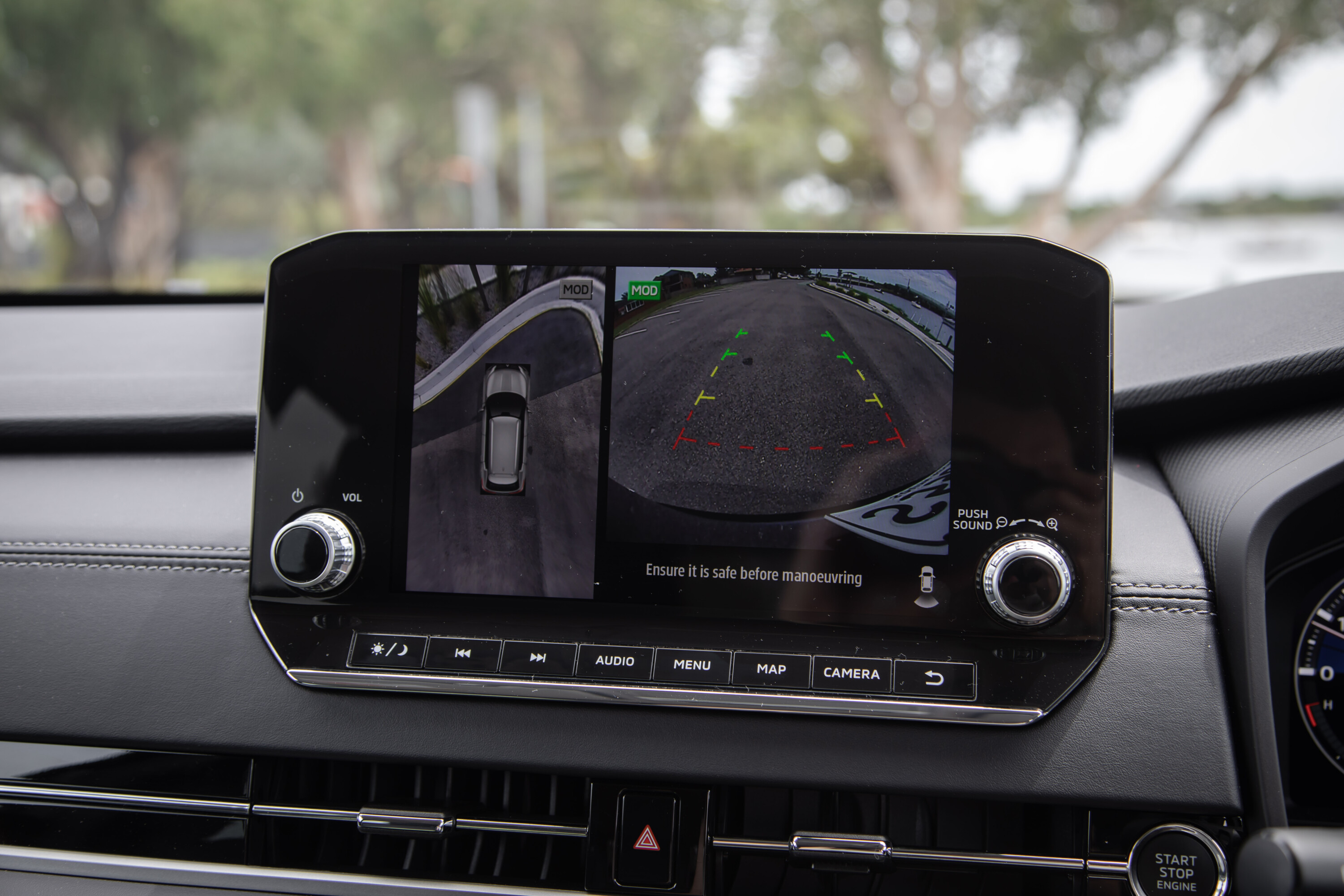
The level of standard safety equipment across the Outlander range is comprehensive.
Every Outlander includes eight airbags, autonomous emergency braking with pedestrian and cyclist detection, lane departure warning and prevention, blind-spot monitoring, rear cross-traffic alert, traffic sign recognition and adaptive cruise control.
A reversing camera is also standard, while higher-spec variants also gain a 360-degree surround view monitor which provides a bird’s eye view of your car and its surroundings.
Every Outlander includes two lots of ISOFIX anchor points for child seats in the second row and has three top tether points.
How comfortable and practical is the Mitsubishi Outlander?
The cabin of the fourth-generation Mitsubishi Outlander is a vast improvement over previous models.
The seats are comfortable, there’s a generous amount of interior storage and the cabin looks and feels modern and premium.
It also feels well-built and is genuinely luxurious in higher-spec models, like the Exceed and Exceed Tourer, which gain soft leather seats and a large panoramic sunroof. The mix of materials in those variants is a highlight with plenty of soft-touch surfaces and the large central touchscreen plus digital instruments offer clear graphics and are easy to use.
Connectivity is also excellent; Apple CarPlay and Android Auto are both included as standard across the range. Only CarPlay is wireless, although the entry-level ES is wired for both phone types.
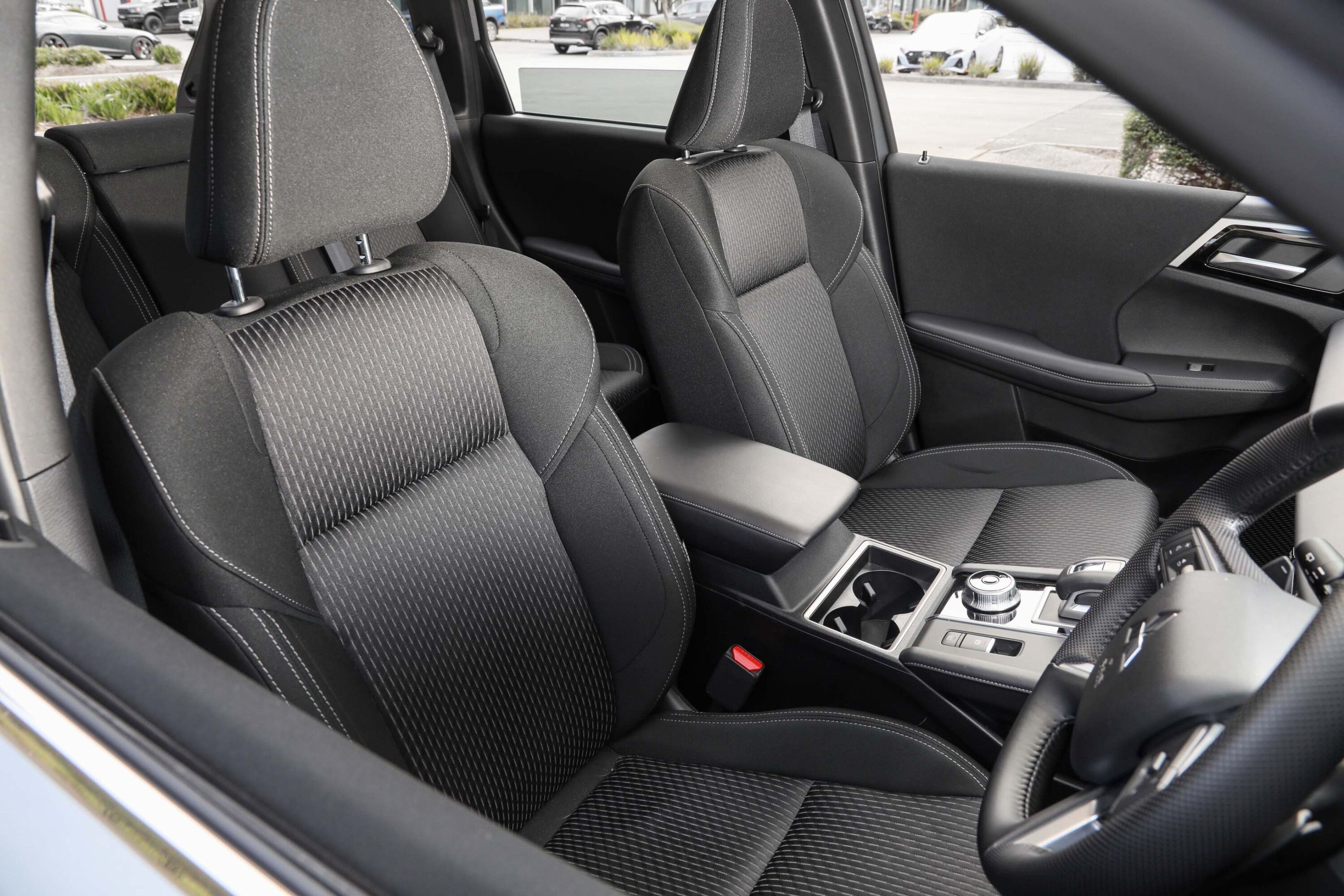
This new Outlander is larger in every dimension than models that have gone before it, resulting in more room for passengers.
The front seats are comfortable and supportive, while second-row passengers enjoy a generous amount of legroom and headroom as well as their own dedicated air vents.
You can also recline and slide the second-row seats fore-aft, which allows you to vary the amount of rear legroom and boot space. In seven-seat versions, the sliding bench also provides easier access to the third row and affords passengers in those seats more knee room.
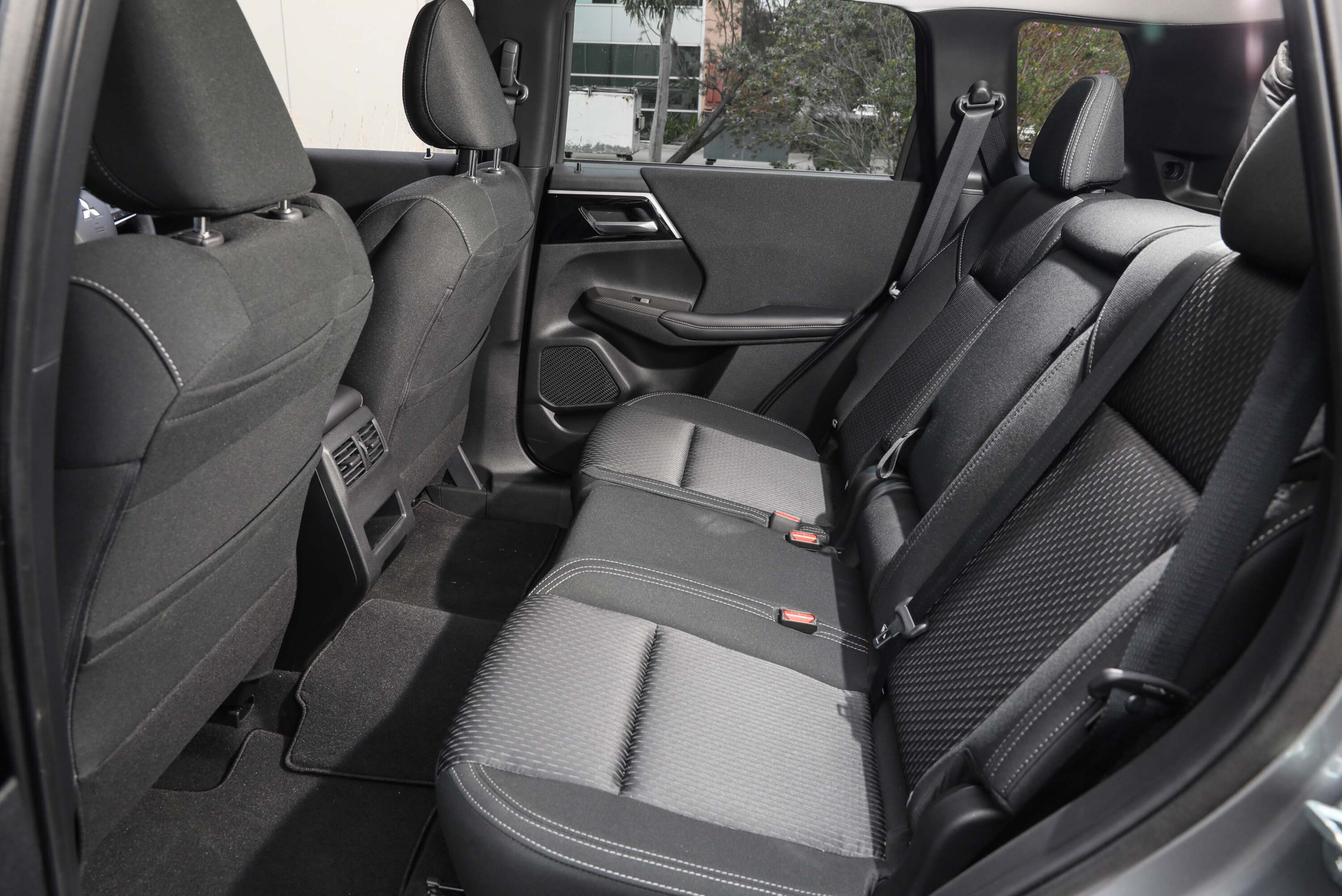
The Outlander is a mid-size SUV, so room in the third row is best suited to pre-teens. Adults do fit, although tight space at the knee and head means most will find the rearmost seats suited only to short journeys.
Mitsubishi says the Outlander is a 5+2 seater, not a genuine seven-seat SUV.
It is easy to erect the third-row seats and they fold cleverly into the boot floor so they don’t eat into luggage space.
All-round visibility is good and the cabin is well isolated from road and tyre noise which makes the Outlander a comfortable and quiet family SUV to drive long distances.
Overall, the Outlander makes good use of its additional interior space but while it is roomier and more luxurious than before, some rivals do have more space in the back seat for adults and larger boots.
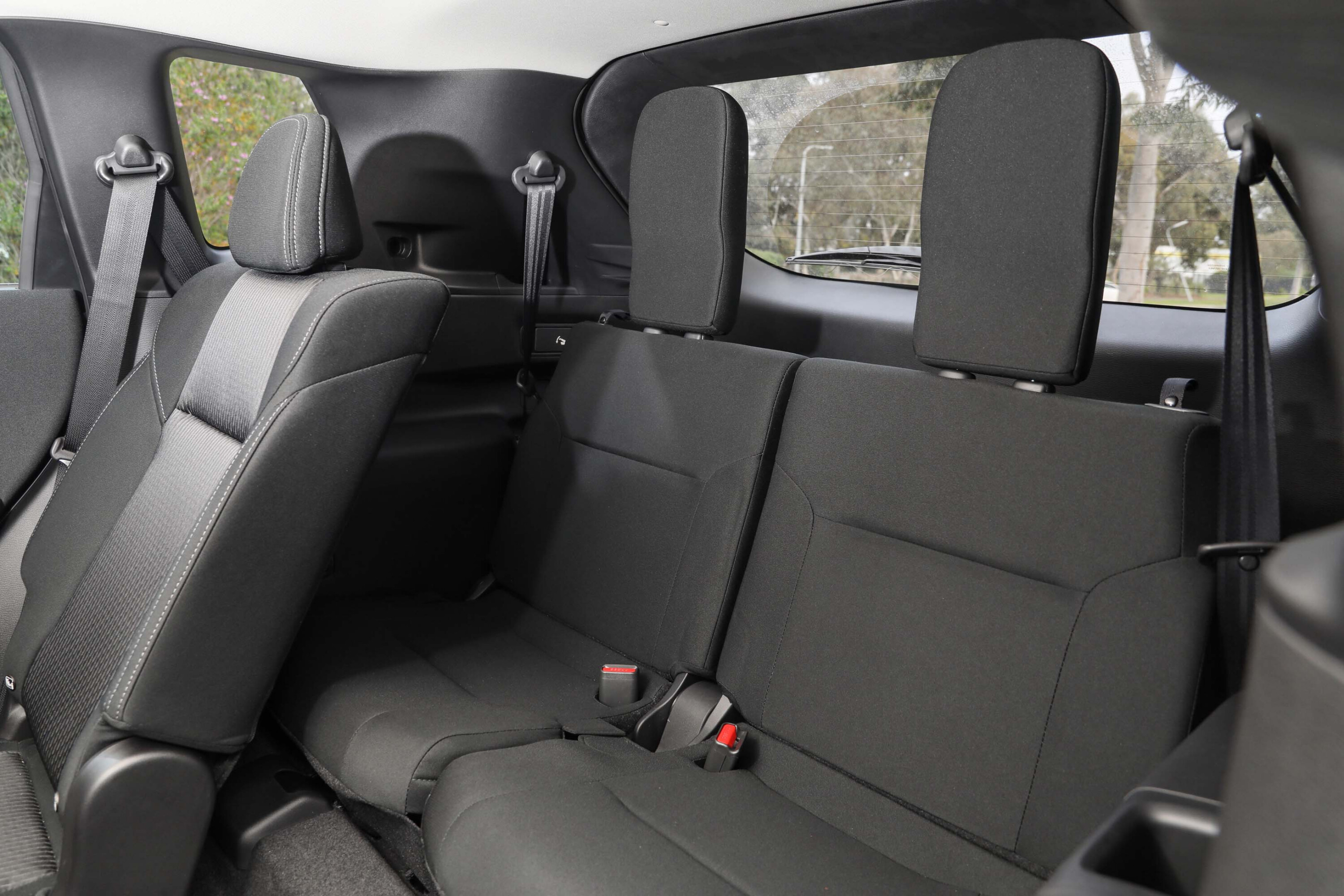
How much boot space does the Mitsubishi Outlander offer?
The Mitsubishi Outlander offers approximately 480 litres of boot capacity. That’s on the smaller side for a mid-size SUV and the exact size of the boot differs slightly depending on which Outlander variant you buy.
Petrol-powered five-seat versions have a 485L boot, for example, while those fitted with seven seats have 478 litres.
Plug-in hybrid versions are different again. Five-seat PHEV models have 494L of boot capacity, while seven-seat PHEVs offer the least of any Outlander at 461L.
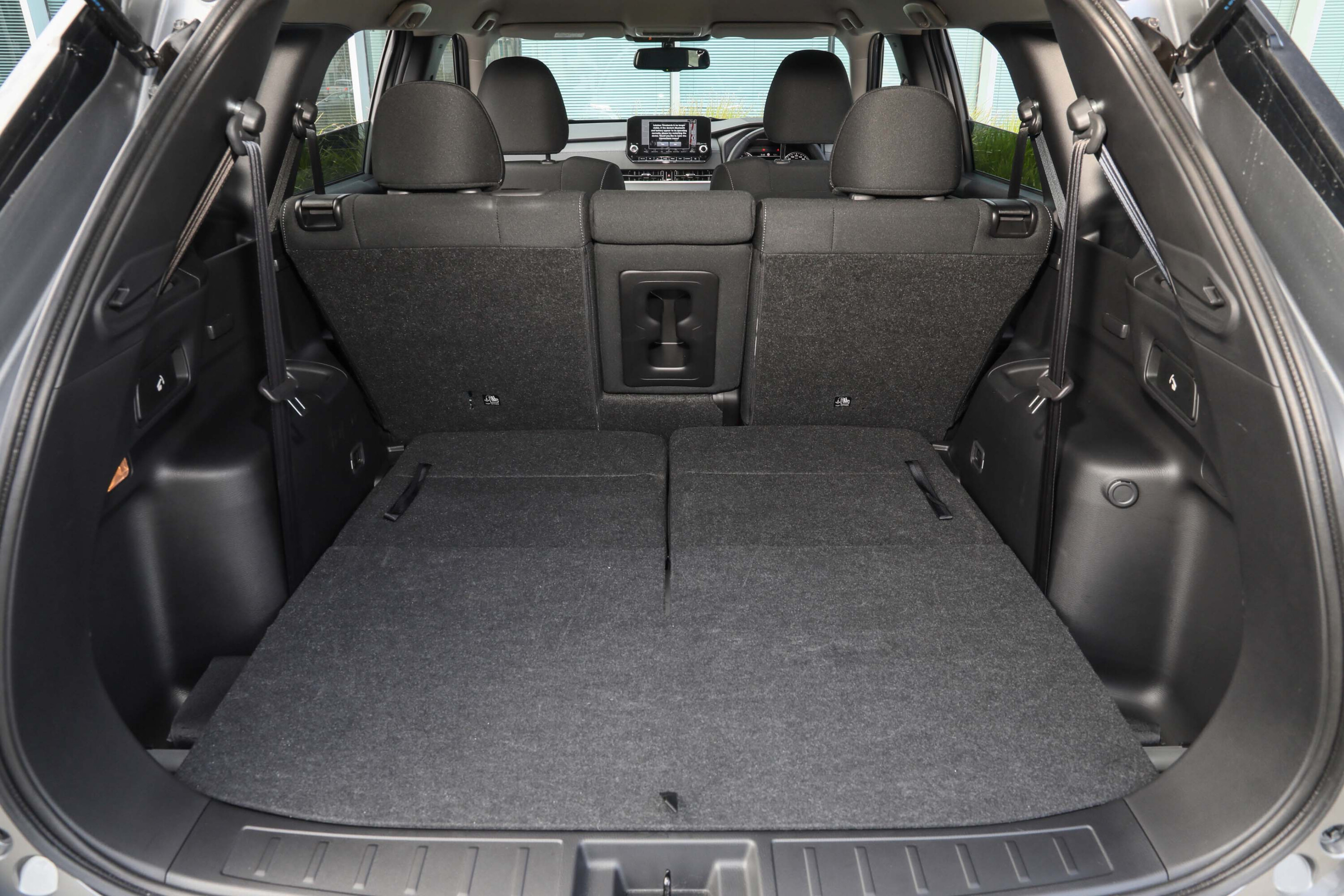
While the official measurements differ slightly across the range, Mitsubishi has done an excellent job of integrating the third row of seats into the boot floor to ensure they hardly change the Outlander’s load-lugging ability.
If you look at the boot of a five-seat Outlander next to a seven-seater, for example, you’ll be hard-pressed to tell the difference.
PHEV models do have some notable differences. Having to integrate an electric motor beneath the boot floor means the Outlander PHEV does not have a spare wheel which leaves only a compressor and tyre repair kit if you get a flat. Buyers also lose some useful storage bins on either side of the boot floor in PHEV models and the third row of seats is more difficult to erect due to a different design.
In all models, the second row of seats can be folded 40:20:40 and with those seats laid flat the Outlander’s boot capacity expands to about 1465L.
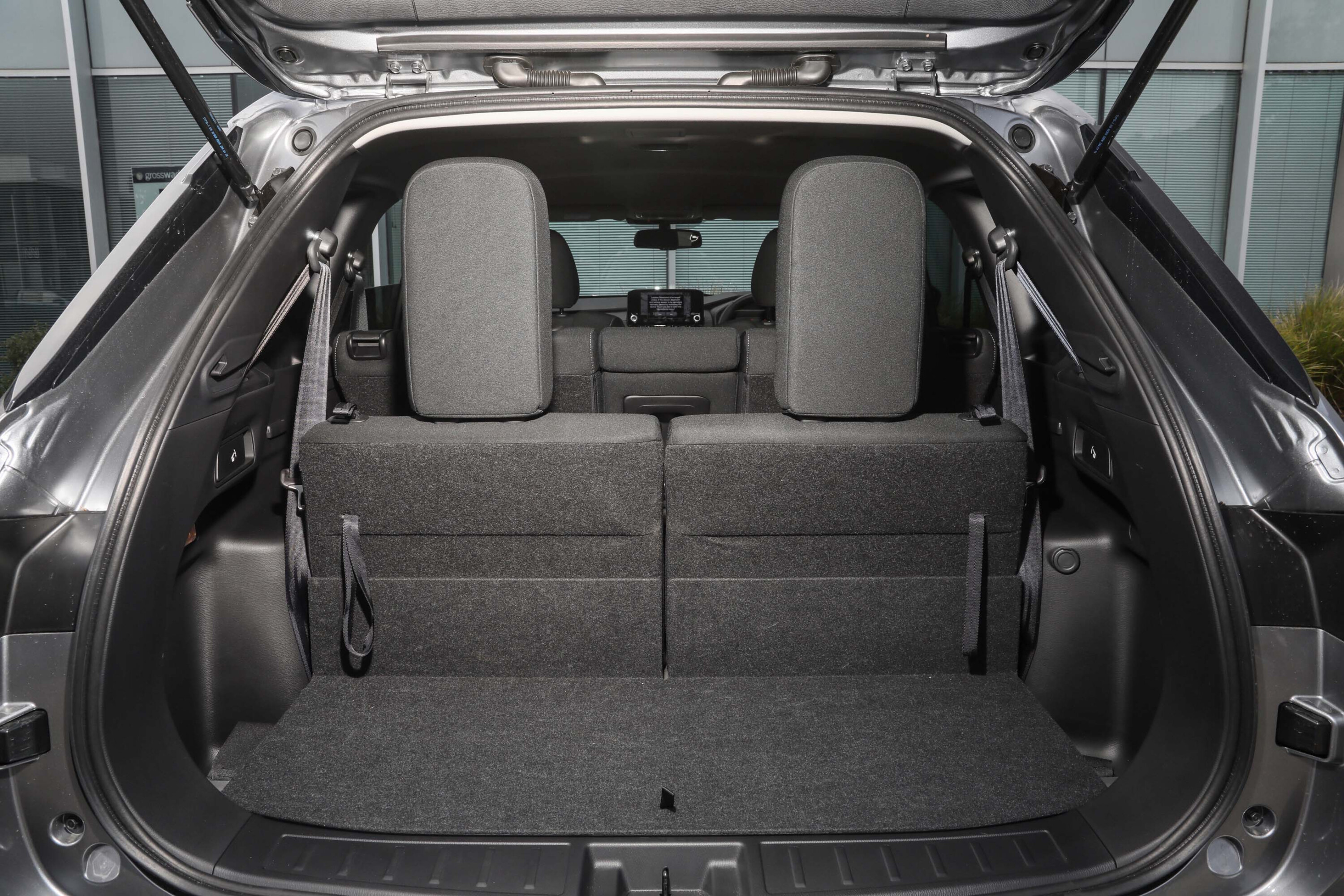
I like driving, will I enjoy this car?
Yes. The Mitsubishi Outlander is a fun family SUV to drive.
Although it’s no sports car, keen drivers will appreciate its accurate steering, high grip levels and clever all-wheel-drive system, which combine to make the Outlander a willing and confidence-inspiring companion, even in wet conditions.
Open road refinement is impressive, too, with the Outlander doing a decent job of filtering out intrusive road and tyre noise. The engine can get a touch vocal on hilly terrain or when overtaking but generally the Outlander is a quiet and relaxing SUV to drive.
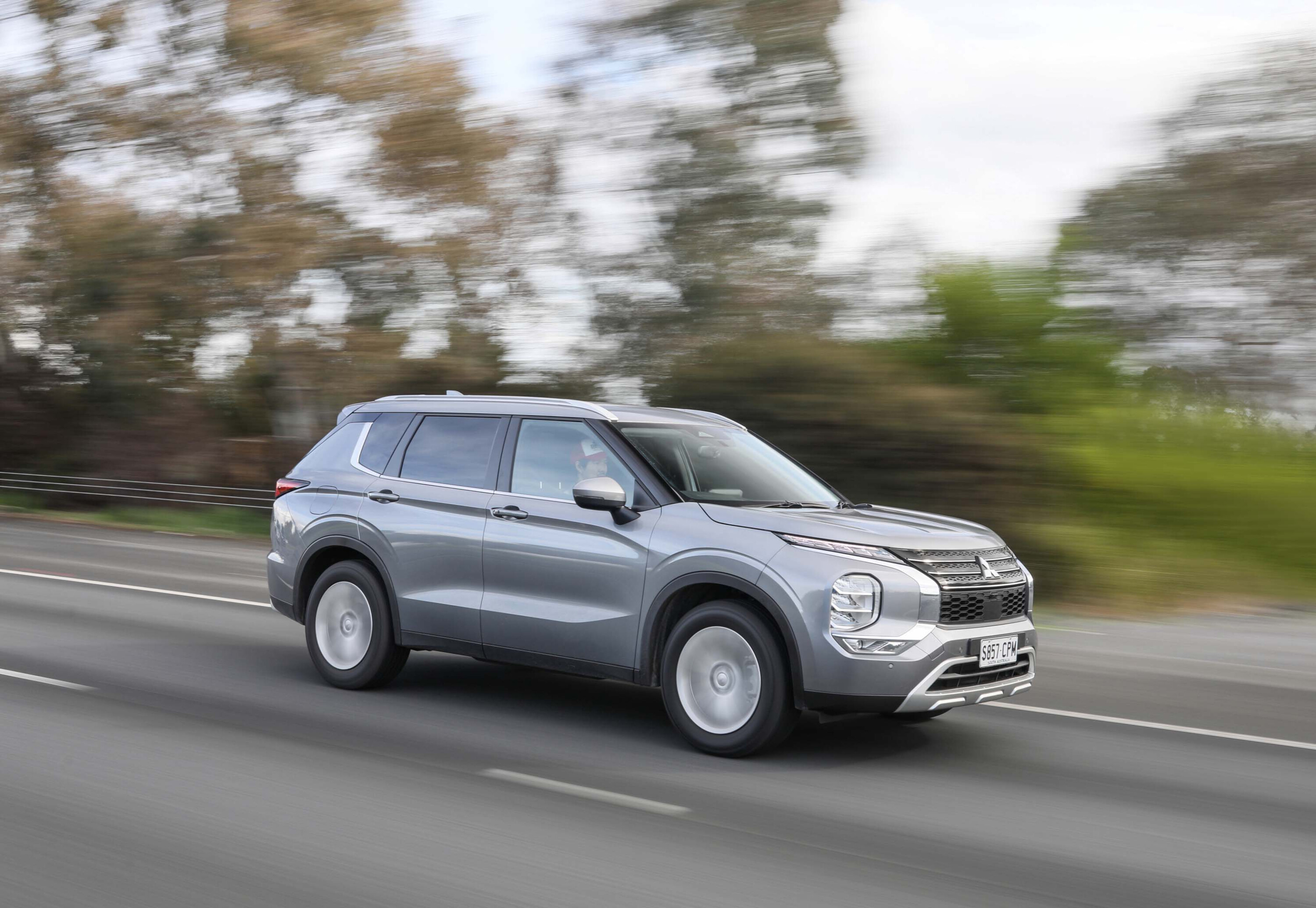
Around town, the Outlander offers excellent visibility, while steering is light and accurate, making it easy to manoeuvre in tight spaces and car parks.
Finding a comfortable driving position is also straightforward thanks to ample seat adjustment and a steering wheel that moves for reach and rake.
The only real weakness in how the Outlander drives is how it rides over bumps. While the suspension mostly strikes a good balance between comfort and control, big bumps can jolt unpleasantly and over poor surfaces the Outlander’s ride can feel sudden and fidgety. It’s an issue you notice more in higher-spec models fitted with large 20-inch wheels.
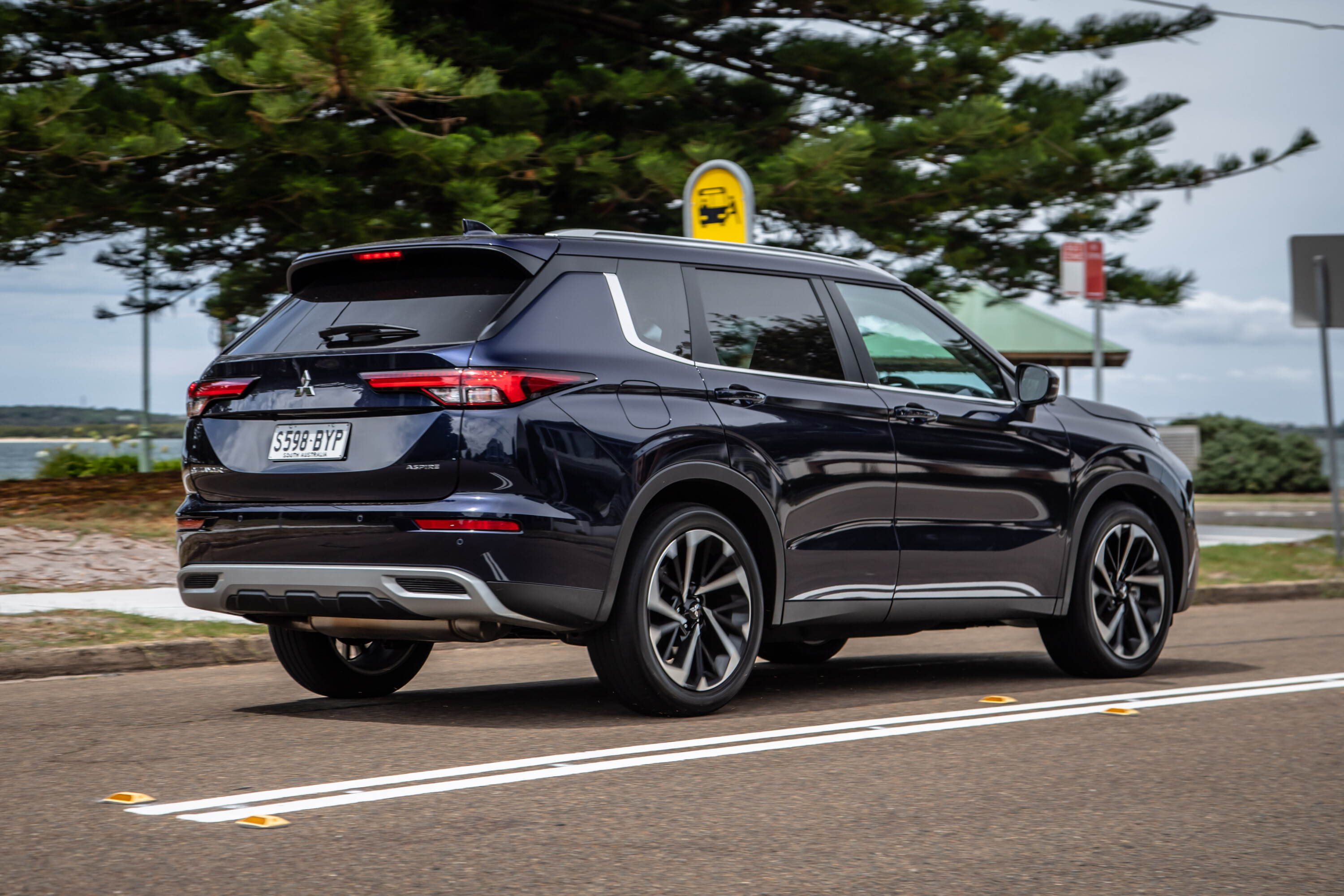
Both engine options offer strong performance
The 2.5-litre petrol engine is relatively quiet on a light throttle and in everyday driving it’s impressively responsive and eager. It pairs well with the CVT that is smooth and rarely drones or delivers the unnatural feeling of some CVTs where your throttle position and engine/road speed feel out of sync.
It’s the PHEV powertrain, however, that is the pick of the model range.
It combines a 2.4-litre petrol engine with an electric motor on each axle and doesn’t only use less fuel, but it’s quieter and more powerful. Mitsubishi’s PHEV system favours electricity to turn the axles so the Outlander PHEV drives more like an electric car than a conventional hybrid.
Acceleration is sprightly from a standstill and the Outlander PHEV delivers a driving experience that feels more premium and luxurious than models powered by the 2.5-litre petrol.
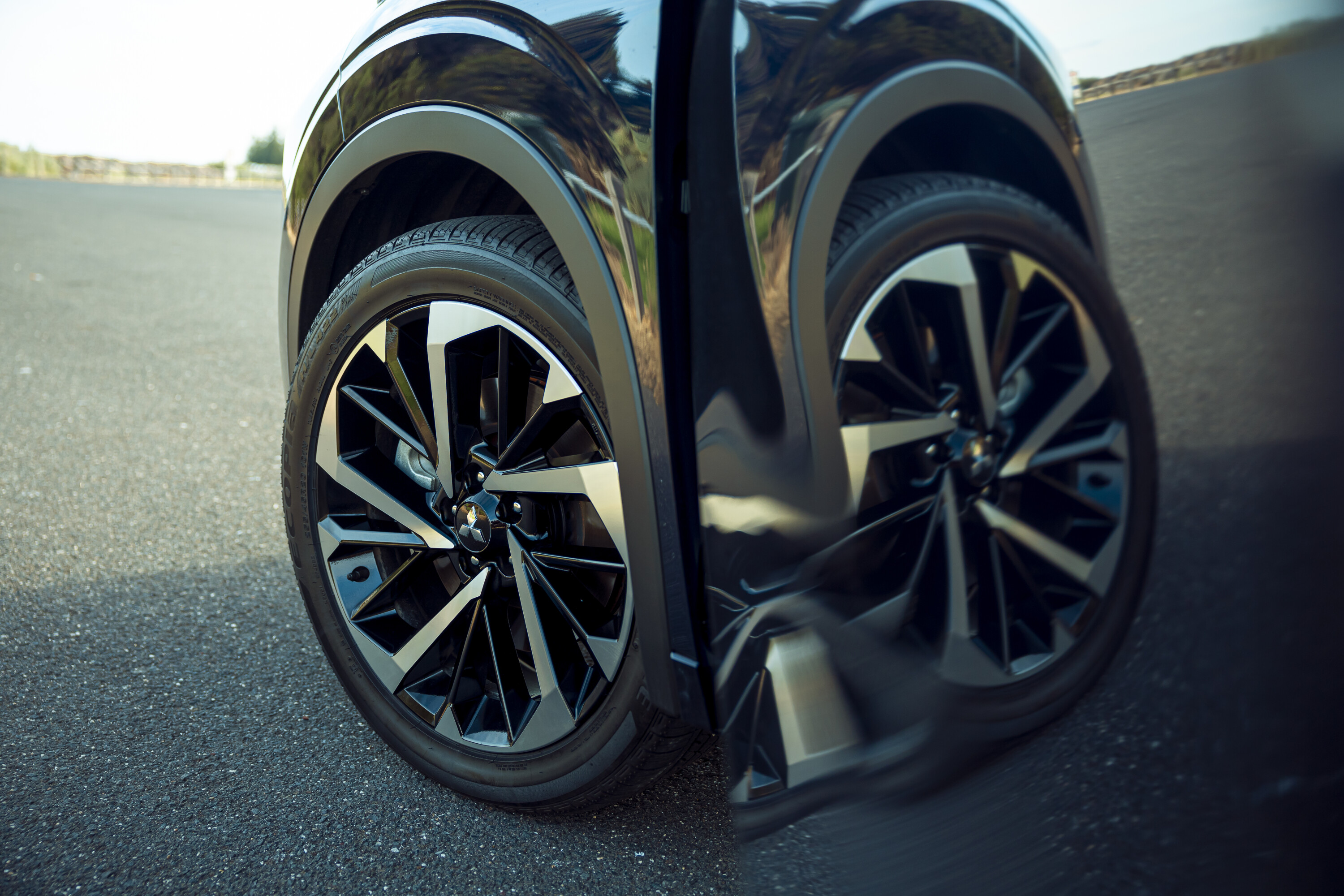
If any of the terms in this section has left you scratching your head, these articles will help bring you up to speed!
- What is a Powertrain or Drivetrain?
- Power vs torque
- Car suspension explained
- Automatic transmissions (‘gearboxes’) explained
- Chassis control systems explained
- Car vs Ute vs SUV: How the vehicle you buy should guide the way you drive
Which Mitsubishi Outlander engine uses the least fuel?
The plug-in hybrid powertrain in the Mitsubishi Outlander PHEV uses the least fuel, at 1.5L/100km on the official test (city and country combined).
It’s an impressive on-paper consumption figure and a big improvement compared to the regular Outlander range which uses a 2.5-litre petrol engine and has a consumption figure of between 7.5L/100km for front-drive variants and 8.1L/100km for those with all-wheel drive.
But is the PHEV’s fuel claim actually achievable in the real world? Mostly, that will come down to how owners use it. Mitsubishi’s own research shows PHEV owners drive their cars in EV mode 84 per cent of the time and if your daily commute is less than 84km, the goal of drastically slashing your fuel bill should be an achievable one.
Regularly topping up the PHEV with charge is the key to its impressive economy rating. Our experience shows that if you plug it in regularly, a fuel rating of around 4.0L/100km is achievable.
If you don’t have regular access to a socket, however, you can expect that number to blow out to around 8.0L/100km.
The Outlander PHEV has a 20kWh battery and takes around 9.5 hours to achieve a full charge from a regular 240-volt socket. Fitting a more powerful AC wallbox at home reduces charging time to 6.5 hours. On a DC fast charger, the Outlander PHEV can achieve a 0-80 per cent charge in 38 minutes.
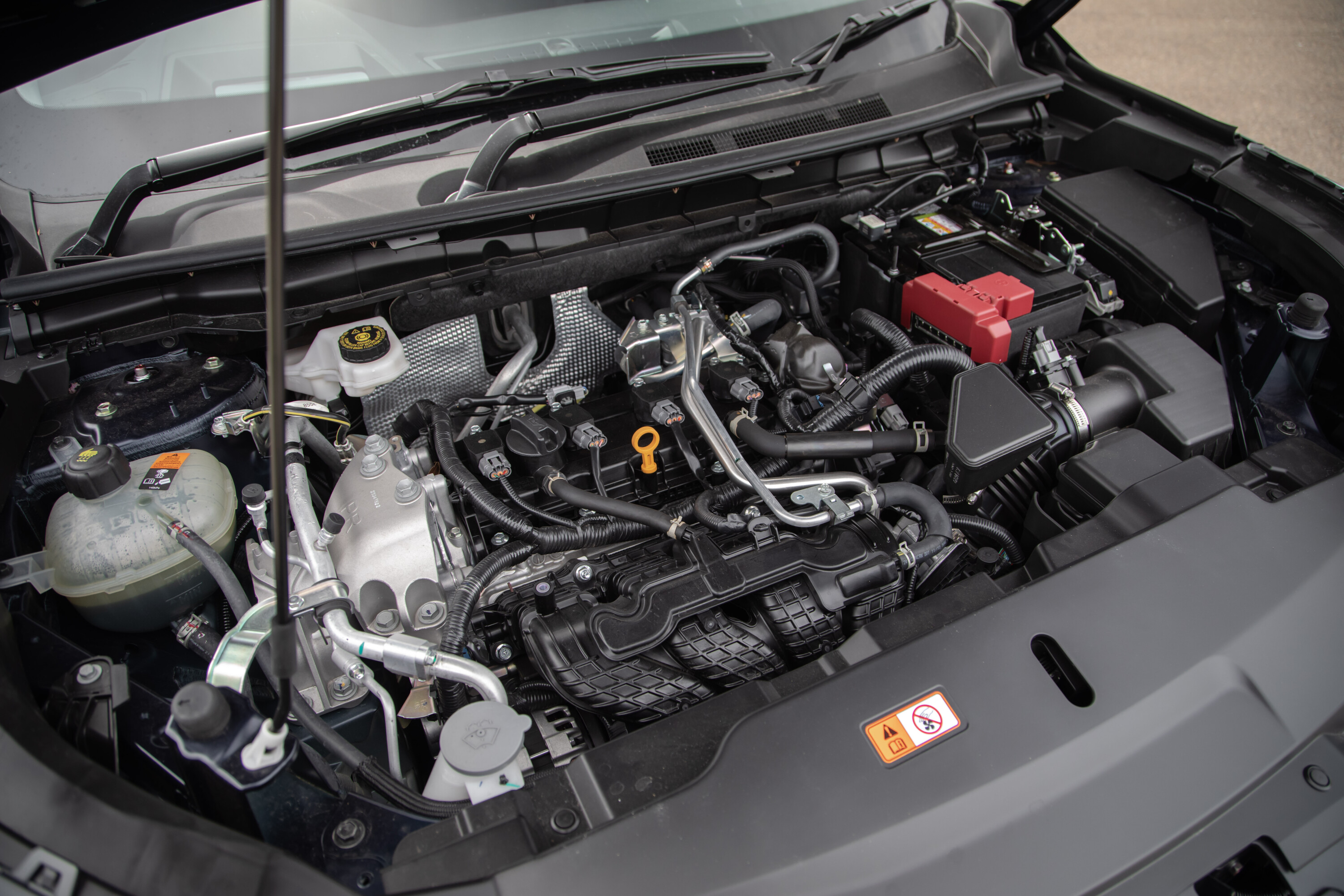
What is the Mitsubishi Outlander’s towing capacity?
The Mitsubishi Outlander has a braked towing capacity of 1600kg, with a maximum tow ball rating of 160kg.
That rating is the same across the Outlander range, with PHEV models now on par with petrol versions thanks to an improved tow rating for this generation.
How long is the warranty and what are the Mitsubishi Outlander’s servicing costs?
The Mitsubishi Outlander comes with a market-leading 10-year factory-backed warranty, providing you service your vehicle at an authorised dealer.
If you service it elsewhere, the warranty reverts to five years/unlimited kilometres which is now the industry standard.
One thing to be mindful of is that the battery pack in PHEV models carries a lesser warranty of eight years or 160,000km. That’s standard for most electric vehicles and Mitsubishi also guarantees the battery against excessive degradation, promising to replace it if the capacity dips below 66 per cent over that eight-year period.
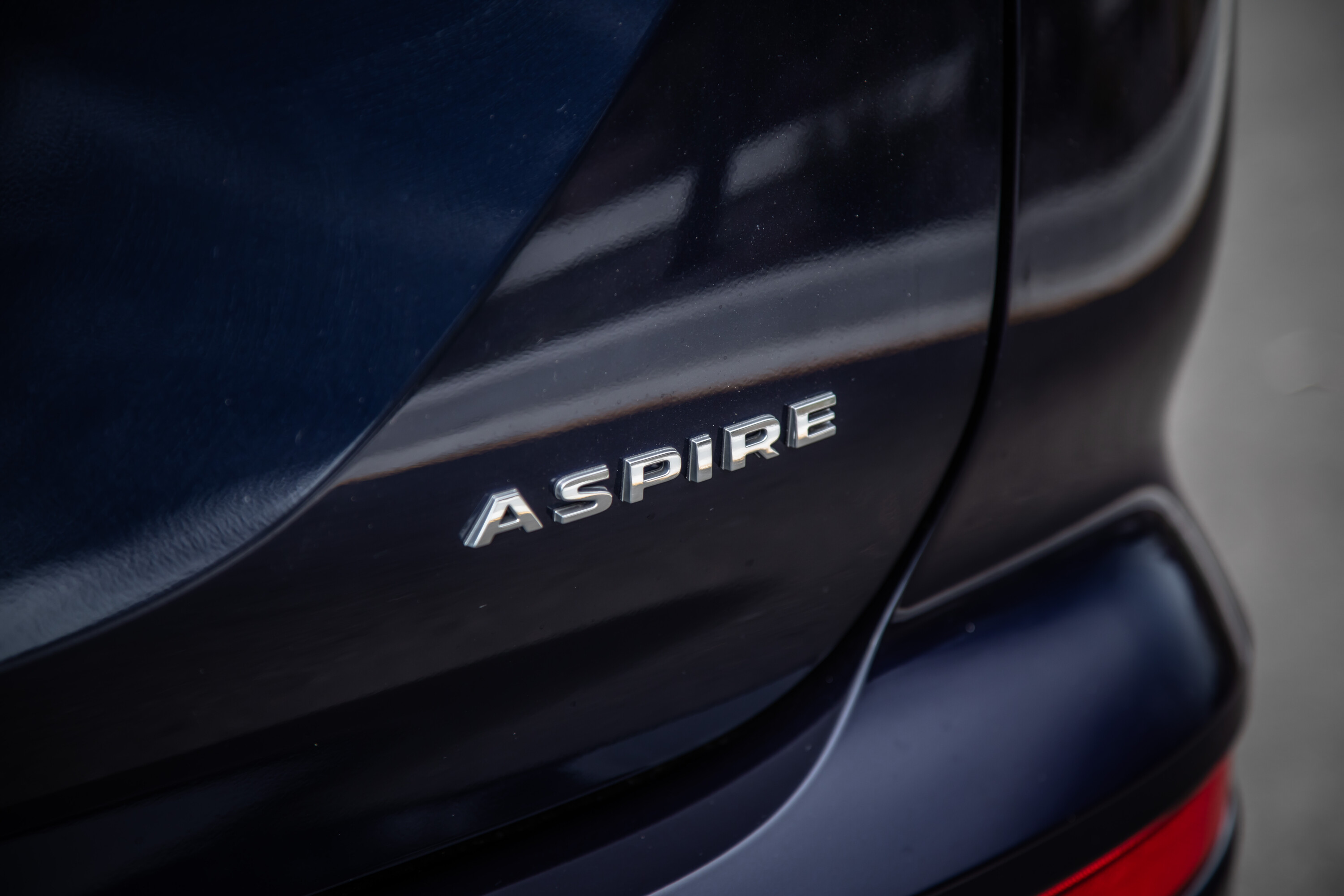
Still, it’s something to be mindful of. All batteries degrade, and if your Outlander PHEV retains 66 per cent after eight years, your EV-only range will drop from 84km to 56km.
All Outlander variants have service intervals of 12 months or 15,000km (whichever comes first) and Mitsubishi offers a competitive capped-price servicing program to keep maintenance costs low.
Prices vary between petrol and PHEV models, with a petrol model costing $299 for a minor service compared to $349 for the PHEV.
Over 10 years a petrol Outlander will cost $4340 to service, while a PHEV is $750 more to maintain at $5090.
Which version of the Mitsubishi Outlander does Wheels recommend?
Our reviewers reckon the mid-spec Outlander Aspire AWD seven-seater is the pick of the model range.
At around $47,000 (before on-road costs), it brings a welcome dose of desirable equipment missing in cheaper versions (power tailgate, suede upholstery, heated seats, 20-inch wheels, 360-degree camera and head-up display) but doesn’t command the price premium of the flagship Exceed and Exceed Tourer.
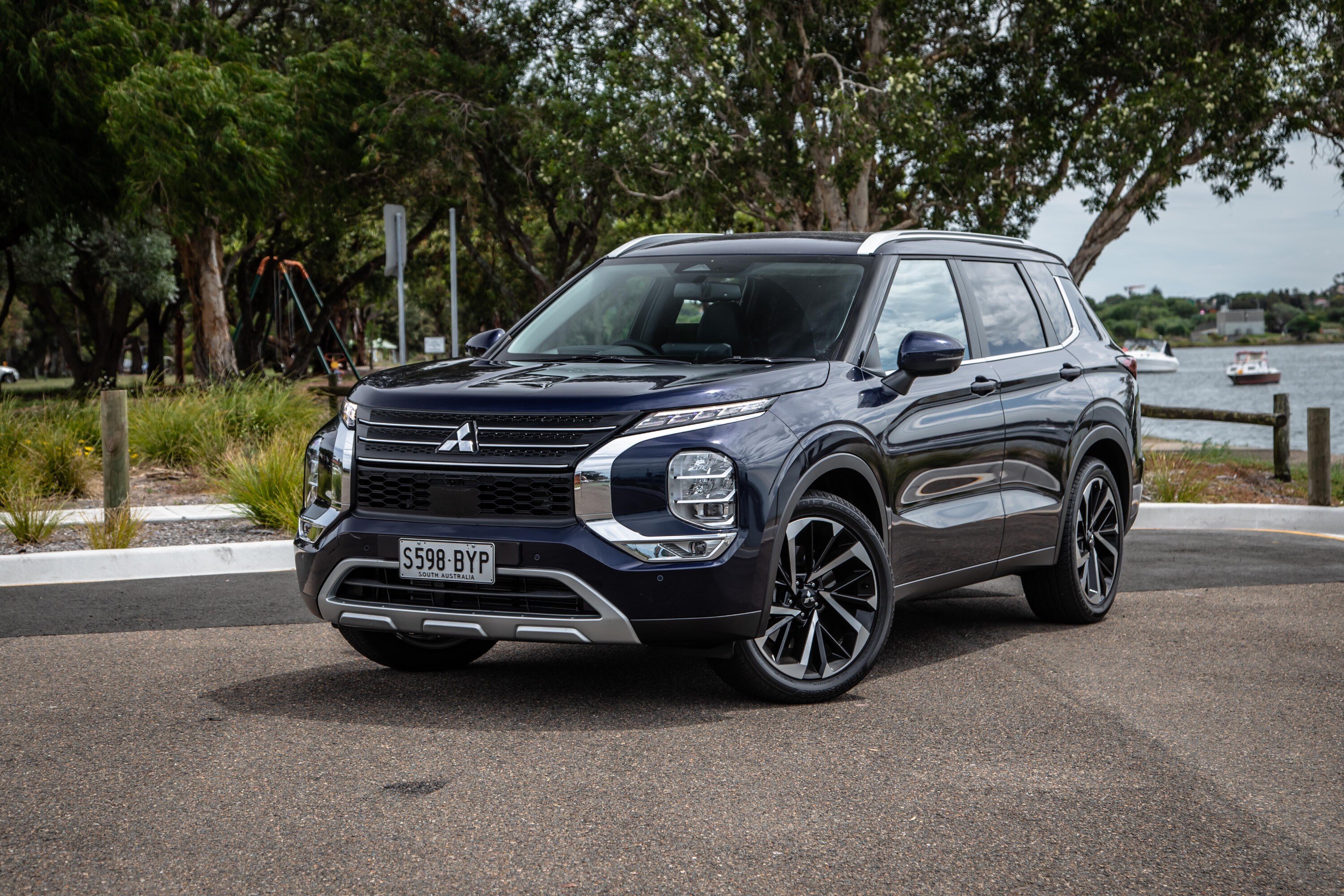
We also think the 2.5-litre petrol engine is the smarter buy.
While the PHEV is more powerful and economical, it commands a $16,000 additional cost over an equipment petrol Outlander which is hard to justify in the value-focused family SUV segment.
What are the Mitsubishi Outlander’s key rivals?
The Mitsubishi Outlander plays in one of Australia’s most competitive and crowded segments, meaning buyers have lots of options to choose from.
Key alternatives to the Mitsubishi Outlander include:
- Kia Sportage
- GWM Haval H6
- Honda CR-V
- Hyundai Tucson
- Mazda CX-5
- MG HS
- Nissan X-Trail
- Peugeot 3008
- Subaru Forester
- Toyota RAV4
- Volkswagen Tiguan
Score breakdown
Things we like
- Bold exterior styling
- Cabin feels modern and premium
- Plug-in hybrid offers strong performance and impressive economy
Not so much
- Plug-in hybrid versions are expensive
- Rear-seat room and boot space aren’t class-leading
- Big wheels on top-spec models can jolt unpleasantly over bumps
We recommend
-
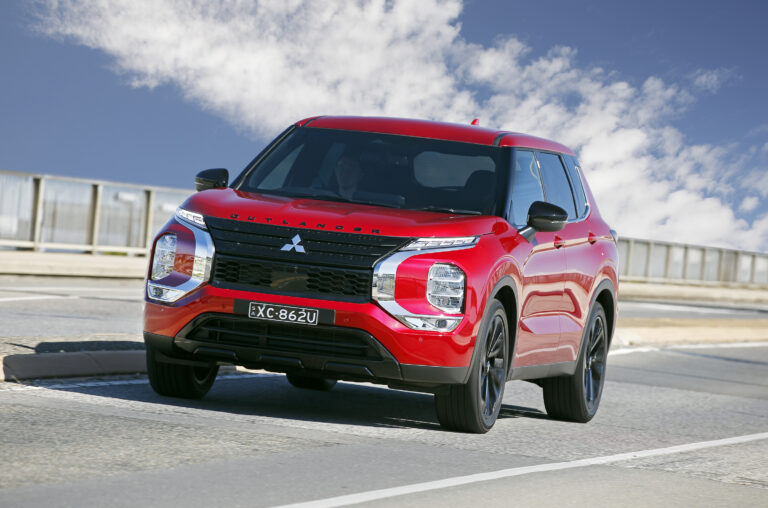 News
News2023 Mitsubishi Outlander pricing and features: New safety features, Black Edition
Mitsubishi's popular mid-size SUV has received its second update since launch, with new safety technology and minor specification changes – but price rises of up to $1000
-
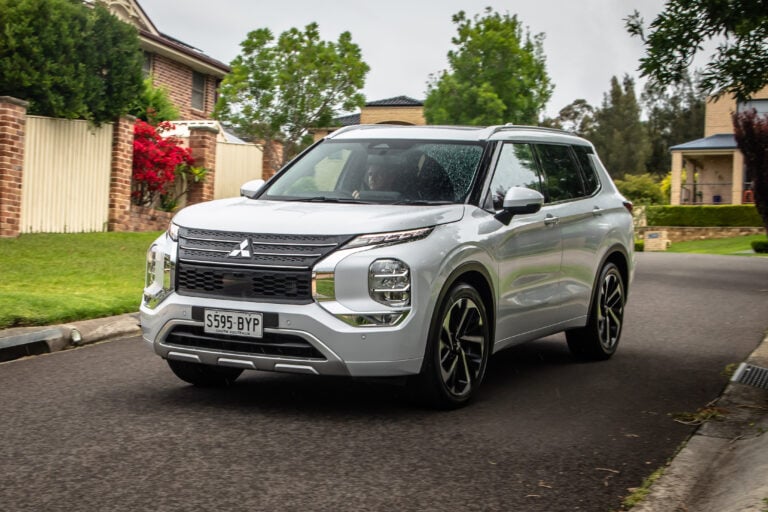 Reviews
Reviews2022 Mitsubishi Outlander Exceed review
Mitsubishi has finally replaced the Outlander with something far more modern. Could this be the Mitsubishi of old, back in the ring?
-
 News
NewsNew car calendar 2026: All the new cars coming to Australia next year
Here’s the WhichCar by Wheels guide to all the new cars that will launch in Australia in 2026. Check back in regularly for updates...

